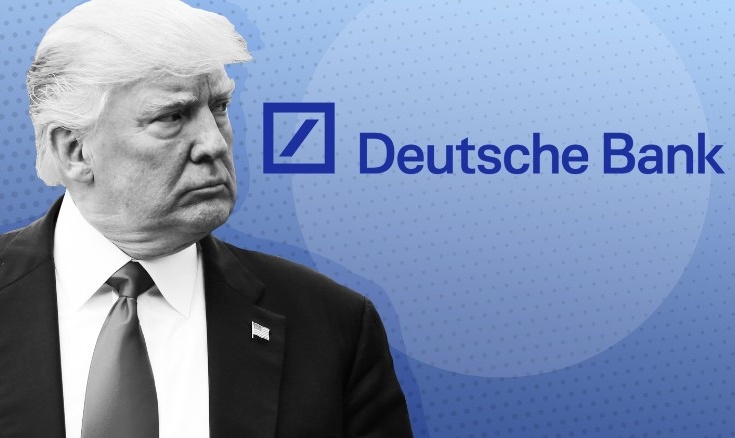Deutsche Bank staff saw suspicious and possibly illegal activity in multiple transactions involving Donald Trump and his son-in-law Jared Kushner in 2016 and 2017.
The staff recommended reporting to a federal financial-crimes watchdog, under anti-money laundering procedures, but bank executives halted any notification.
Current and former bank employees said the transactions set off alerts in a computer system designed to detect illegal activity, Some of them involved money flowing back and forth with overseas entities or individuals, including Russians.
Former employees said the decision not to report the transactions reflected the bank’s lax approach to money laundering laws.
There may have been added incentive for executives in 2016-17 because of the coincidence of Trump’s campaign and President with the money that he owed to the bank.
Deutsche Bank was the only major financial institution willing to lend to Trump after a series of defaults from a businessman with a history of six bankruptcies.
The bank lent a total of more than $2.5 billion for projects such asTrump’s Doral golf resort near Miami, Florida and the conversion of Washington’s Old Post Office Building into a Trump International hotel.
When Trump became President, he still owed Deutsche Bank well over $300 million.
Congressional committees and New York State prosecutors are investigating the relationship and have demanded Deutsche Bank’s records related to Trump, his family ,and their companies. Subpoenas from two House committees call for documents from any suspicious activities detected in Trump’s personal and business bank accounts since 2010.
Trump and his family sued Deutsche Bank in April to block compliance with the congressional subpoenas.
Suspicious Transactions — and Russians
In summer 2016, Deutsche Bank’s software flagged a series of transactions involving Kushner’s real estate company.
Tammy McFadden, an anti-money laundering specialist in Deutsche Bank’s office in Jacksonville, Florida, found transfers of money from Kushner Companies to Russian individuals.
McFadden recommended that the transactions be reported to the government . Federal regulators had ordered Deutsche Bank, after it was found guilty of laundering billions of dollars for Russians, to toughen its scrutiny of potentially illegal transactions.
But Deutsche Bank executives in New York said they believed McFadden’s concerns were unfounded and did not submit the report to the government.
After Trump became president, his transactions and those of his companies and the now-defunct Trump Foundation were reviewed by the bank’s Special Investigations Unit. It produced multiple suspicious activity reports.
Executives again chose not to file the reports with the US Treasury.
Kerrie McHugh, a Deutsche Bank spokeswoman, said the company had intensified its efforts to combat financial crime.
“At no time was an investigator prevented from escalating activity identified as potentially suspicious. Furthermore, the suggestion that anyone was reassigned or fired in an effort to quash concerns relating to any client is categorically false.”
Amanda Miller, a spokeswoman for the Trump Organization, said, “We have no knowledge of any ‘flagged’ transactions with Deutsche Bank.” She claimed the Trump Organization currently has “no operating accounts with Deutsche Bank”.

